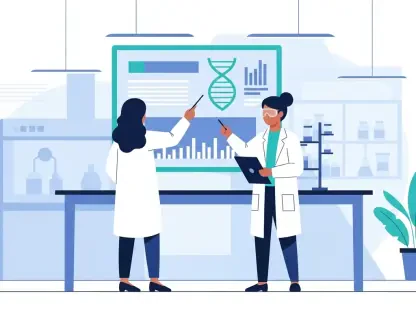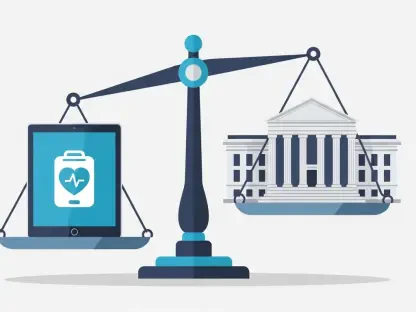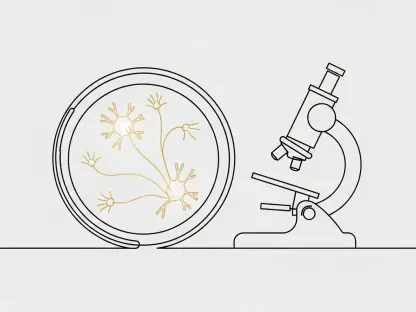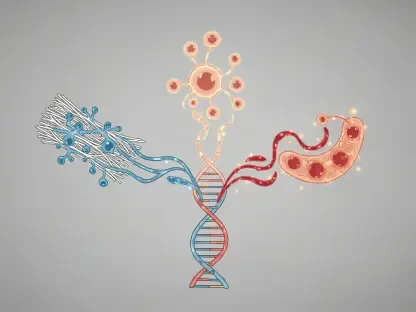Listen to the Article
Technology and science are constantly evolving and advancing, and with them, the world of drug development is also changing. Using AI and CRISPR for gene editing and bioprinting human-like tissues are just some examples of innovations that are set to change how life-saving therapies are developed. The introduction of next-level delivery systems, precision medicine, and computational biology can help pharmaceutical companies and researchers tackle complex medical problems with greater efficiency and accuracy than ever before.
Apart from improving treatment options for current medical conditions, these advancements open doors to preventing and treating chronic illnesses, genetic disorders, and even rare diseases which previously posed a bigger challenge.
This article aims to highlight five recent milestones that will change the world of pharmaceuticals and serve as a base for upcoming innovations in health.
3D bioprinting for human-like tissue development
A big problem in developing new drugs has been the ability to test them like they’re in the human body. Common ways of testing, like using animals or 2D cell cultures, often fail to simulate just how complex human body parts are. Scientists at Newcastle University, backed by funds from Versus Arthritis, have tackled this issue using a new printing method called Reactive Jet Impingement bioprinting.
The Reactive Jet Impingement printer shoots two different liquids at each other. One has cells suspended in a linking mix, while the other is a polymer mix. They bind to form a gel that can be printed on multiple surfaces. This new technology creates tissue models that have approximately ten times more cells than older versions, making them look and act like human tissue. These human-like tissues can later be used to test cancer medication, as well as drugs for arthritis and cardiovascular disease — to name just a few.
Using AI and CRISPR for gene editing
CRISPR gene editing has already improved genetic medicine by allowing researchers to change DNA sequences. Now, working together, ElevateBio and Amazon Web Services (AWS) elevate this technology by adding artificial intelligence or AI and cloud computing to the mix.
ElevateBio’s Life Edit unit uses its partner’s tools, mainly SageMaker, to make better protein language models. These models can help researchers study numerous proteins and test data faster, making it easier to create new CRISPR systems. This AI-based technology actually speeds up finding gene-editing targets and improves the development of treatments for genetic diseases. By using cloud computing, ElevateBio is also making medicines more accessible. To put it simply, these new technologies can improve gene editing, and bring something that was once only a concept closer to patients and doctors.
Enhancing existing skills by integrating AI technologies
Johnson & Johnson now expects its workers to know more about AI. Recognizing AI’s rising role in developing medicines, the company has created a full course in AI for its teams. More than 56,000 of its 138,000 workers have already taken basic AI lessons – learning to sum up ideas and work with data, in addition to writing clear questions. 14,000 workers have also participated in another more in-depth digital class on AI. Johnson & Johnson makes sure all parts of its staff — from lab research to managing supplies — know enough about AI to help in making drug development better.
According to Business Insider, Johnson & Johnson is not alone in integrating AI technologies to improve employees’ skills. Other giants like Merck and Eli Lilly are also “embracing AI and prioritizing upskilling.”
The rise of peptide-based drugs
Peptide-based drugs have grown in popularity in recent years, offering new treatments for health problems like diabetes, obesity, and cardiovascular disease. Since insulin first appeared in 1922, nearly one hundred peptide drugs received approval, and researchers continue to push their limits.
According to a recent study, however, peptide drugs face problems since the body does not absorb them well, which has forced doctors to administer them as injections. Despite these issues, the recent approvals of oral semaglutide and oral insulin in China have opened the way to new delivery methods. Because peptide drugs also support drug delivery, vaccine development, and diagnostics, this progress is undoubtedly important. As a consequence, several peptide drugs are now undergoing trials in China, while peptide vaccines move toward last-phase tests for diseases like Alzheimer’s and some cancers.
Pfizer’s push for new weight-loss pills
There is no question that obesity is now an important health problem, and drug companies around the world are working fast to create new treatments. Pfizer is among these companies, and it is moving ahead fast by expanding work into its new obesity pill, danuglipron.
According to Reuters, James List will be leading the research, after leaving his position as Global Therapeutic Area Head of Cardiovascular & Metabolism at Johnson & Johnson. Pfizer is investing considerably in the new drug, adding more members to its existing team. The company is now testing different amounts of a once-a-day danuglipron dose since stopping the twice-a-day approach study in late 2023. If this pill works, it could be a big step in treating obesity, giving people everywhere a better treatment to fight the condition. It seems that Pfizer is making the development of new weight-loss pills a new target for its business.
Conclusion
The way we develop new drugs is changing faster than ever before. New technologies are now making things better, faster, and easier to produce. We have 3D bioprinting to produce human-like tissue and AI to help scientists edit genes. Also, pharmaceutical workers are now improving their AI skills in order to discover new ways of developing medicines and better ways to treat people.
To sum up, these new technologies are helping companies around the world develop better treatments. They can also help them to make these new treatments come out faster. As research and technology go on to break limits, these advances have the power to change health care, giving hope to people around the world. By revolutionizing drug development, these breakthroughs have the potential to make life better.









